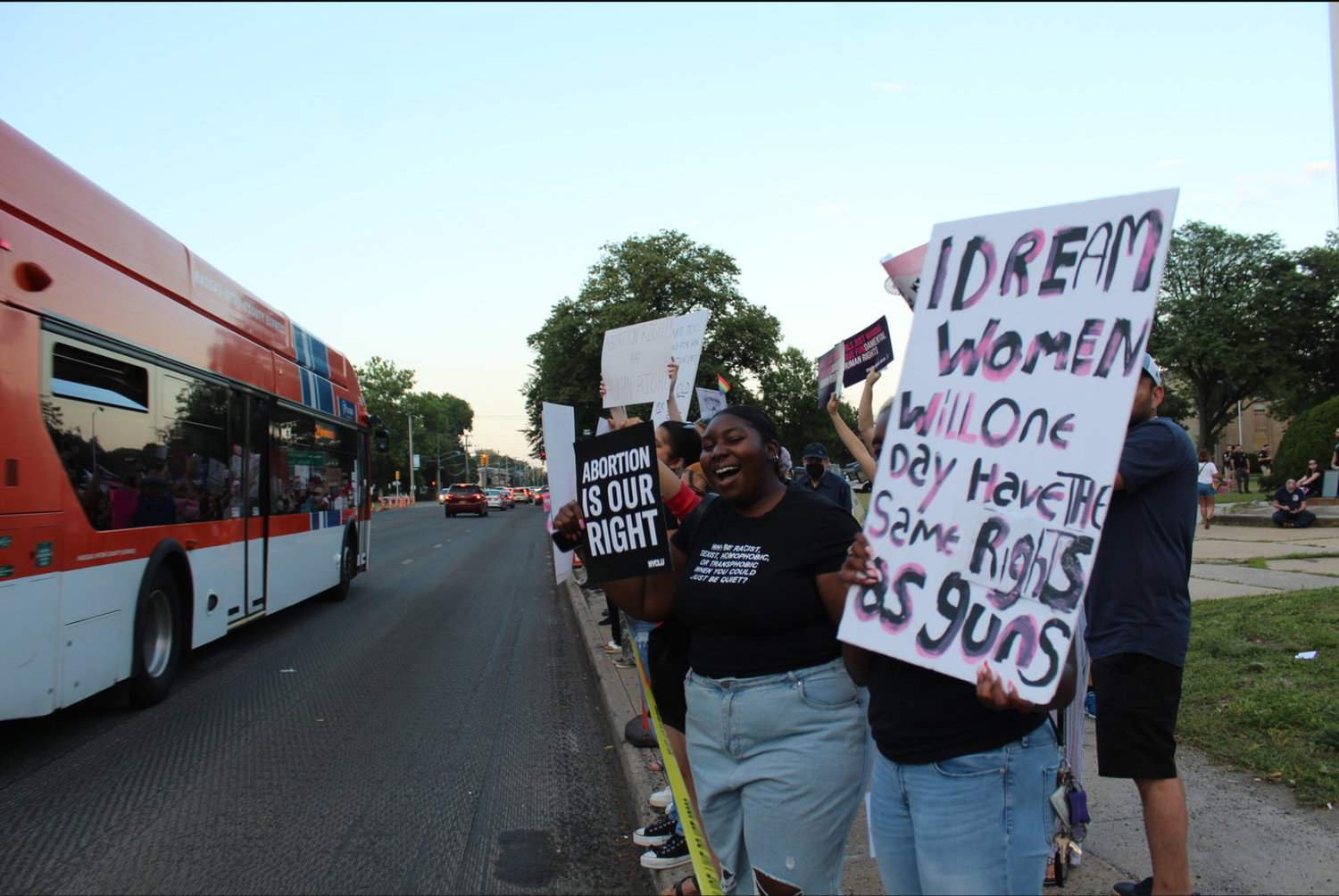Debate continues in wake of Roe overturn
The U.S. Supreme Court’s decision last month in Dobbs v. Jackson Women’s Health Organization left the issue of abortions up to individual states. It’s a decision widely seen as overturning the landmark Roe v. Wade decision in 1973, that provided protected access to abortion.
The decision has left lawmakers, health care providers and Americans in general to navigate a new and what some warn could be a far messier legal, political and medical landscape.
In the wake of the more recent decision, 10 states have officially banned abortions, with a dozen or so more expected to codify an abortion ban or some form of expanded restrictions.
New York, however, will not be one of those states. Lawmakers in Albany have already codified Roe v. Wade, keeping its abortion access intact, and even expanding its protections in recent months, through the pen of Gov. Kathy Hochul.
New York also passed a series of laws intended to shield abortion providers in New York from being sued by other states that prohibit abortions, and has pledged millions of dollars to shore up abortion services.
Abortion clinics and health centers in New York are bracing for the potential inflow of hundreds of out-of-state women seeking access to the procedure, as lawmakers plan to make New York a “sanctuary state” for abortion.
That could affect how fast patients who already live in New York could get such care, said Dr. Sharon Gerber, director of complex family planning at Northwell’s South Shore University and Huntington hospital.
“So, generally, we may start to see patients who are getting abortions at later gestational ages because of the wait time to receive care,” Gerber said.
Abortion pills are available for first-trimester pregnancies which serve as an alternative to a clinic visit, Gerber said. But it’s the people “who don’t have access to the right information (and resources) who are the most vulnerable, whether they’re people who don’t have the internet, or who are young girls who are afraid to tell their parents.
“It’s our most vulnerable who are going to be resorting to less safe and possibly dangerous methods.”
In fact, women living in states where abortions aren’t allowed will likely have to navigate a patchwork of interstate laws that could throw hurdles in the way of receiving such services, said Merle Hoffman, president and chief executive of Choices Women’s Medical Center in Queens, which offers comprehensive gynecological and abortion services.
Health care providers in “some states are making decisions not to accept patients from out of state because there is so much confusion about exactly where it is legal? What is legal? What will be criminalized? Will a facility in another state be open to prosecution,” Hoffman said. “This has wrought a Kafkaesque situation of total confusion and misinformation, and the bottom line is that women will die.”
Hoffman plans to staff up her clinic, but warns additional funding is crucial to support an already overstressed health care system.
“I’m going to need more security guards, more providers, more people on the phone,” Hoffman said. “Some of the great things that have happened is we’ve gotten a lot of people that want to volunteer.”
In terms of cost, health insurance traditionally covers abortions, Gerber said, and some state assistance is available.
“But we are also trying to figure out how to take care of patients whose insurance does not pay for abortion to expand access,” the family planning director added.
The ruling’s ramifications have also weighed on the minds of Valley Stream and nearby residents as they process what life will be like in a post-Roe reality.
“It sucks, that’s for sure,” said one resident, Ariana Miranda. “It feels like we’re going backward again. It’s really embarrassing.”
“A lot of people think people could just move to an abortion-friendly state if you don’t like where you live, but people don’t have the resources and money to do that,” said Janelle Gonsalves “It makes me sad that we live in a country where people are not mindful and caring of everybody’s situation. It feels like we’re moving back in time.”
But there was some praise for the court’s decision as well, like Adelfa McKinney.
“I’d say that abortion should only be used when the delivery of the child comes with serious health risks” to the newborn or the mother, said McKinney, a Queens woman who works in Valley Stream. “If you make a mistake as a young woman and you go out and you end up getting pregnant, I wouldn’t accept that you get an abortion if the child is healthy and it’s safe for (the expectant mother to deliver), because the child has a life. It’s a life that you’re taking away.”
“It probably should be left to the states,” said Abraham Hoschander, a Brooklyn-based attorney visiting Hendrickson Park last weekend. “The people are closer to the state governments than they are to the national government. There are some states who are more liberal-minded, and others are more religious-minded. If there is one rule nationwide, it less reflects the will of the people than if it were on a state-by-state basis.”
But Hoschander also noted that an absolute ban on abortion would go too far, sidelining medical situations where not having access to an abortion can be a “threat to a mother” or the child.
“I do not favor abortion on the whole,” Hoschander said, “but the circumstances should be brought up before a medical practicioner to get some sort of definitive response. Under the right circumstances, there are justified reasons abortion should be available to women.”
Have an opinon on the court's Roe overturn? Send us an email to jlasso@liherald.com.

 49.0°,
Mostly Cloudy
49.0°,
Mostly Cloudy 





